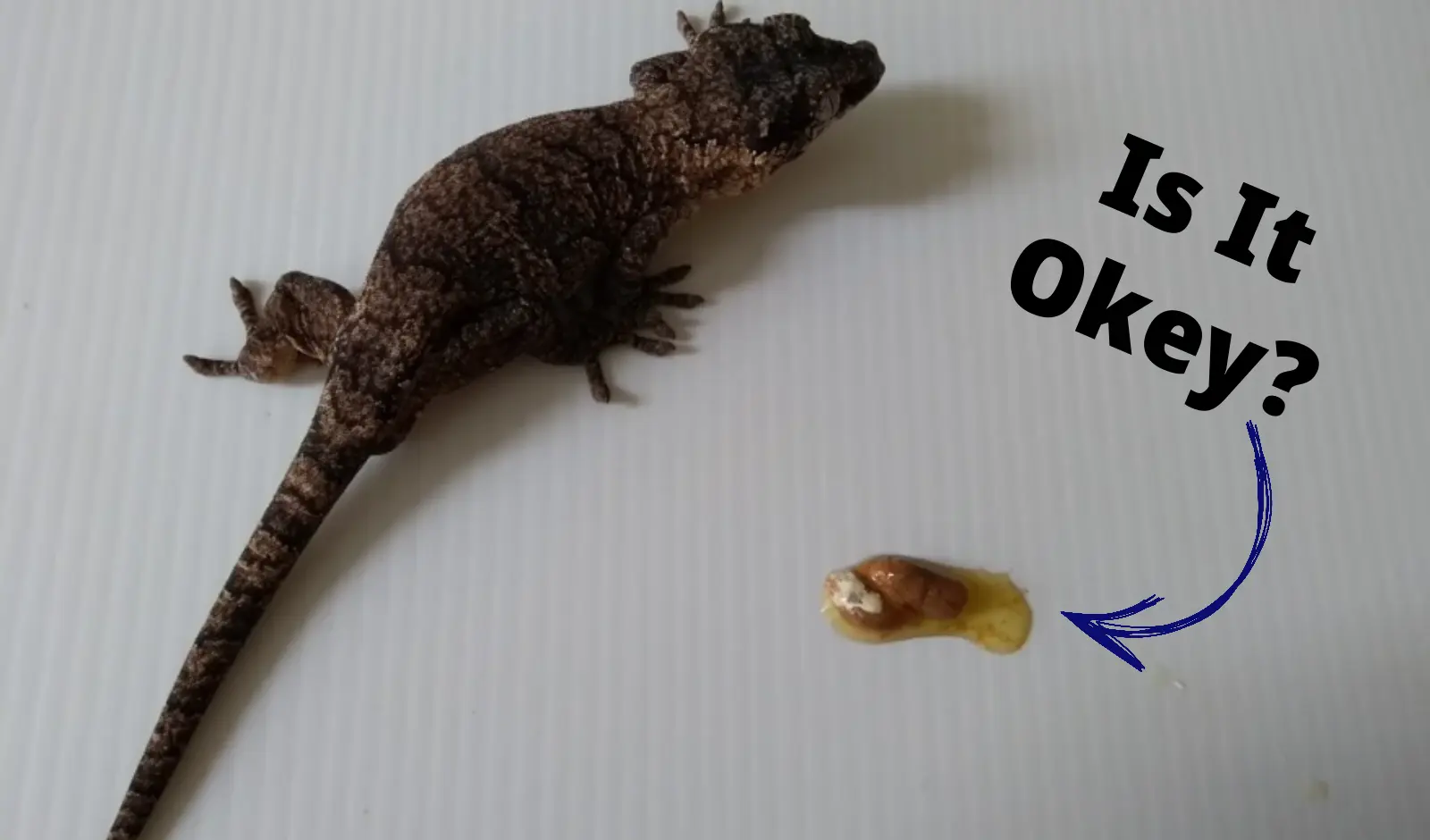One of the most important aspects of caring for your crested gecko is monitoring their poop.
Poop can tell you a lot about your gecko’s health, diet, hydration, and stress level. Which can help you prevent or treat any potential problems that may affect your gecko’s well-being.
In this article, I will walk you through what crested gecko poop looks like, how often they poop, what causes abnormal poop, and how to deal with it.
Let’s move on…
Key Takeaways:
- Normal Crested gecko poop consists of two parts: feces and urate, which are the solid and liquid waste products of digestion and metabolism respectively.
- It can vary in color, shape, size, consistency, and frequency depending on the gecko’s age, diet, temperature, activity, and stress level.
- Abnormal Crested Gecko poop color typically looks like yellow, green, or even red that indicate dehydration, infection, or bleeding.
Here are the detailed guidelines:
What Does Normal Crested Gecko Poop Look Like?
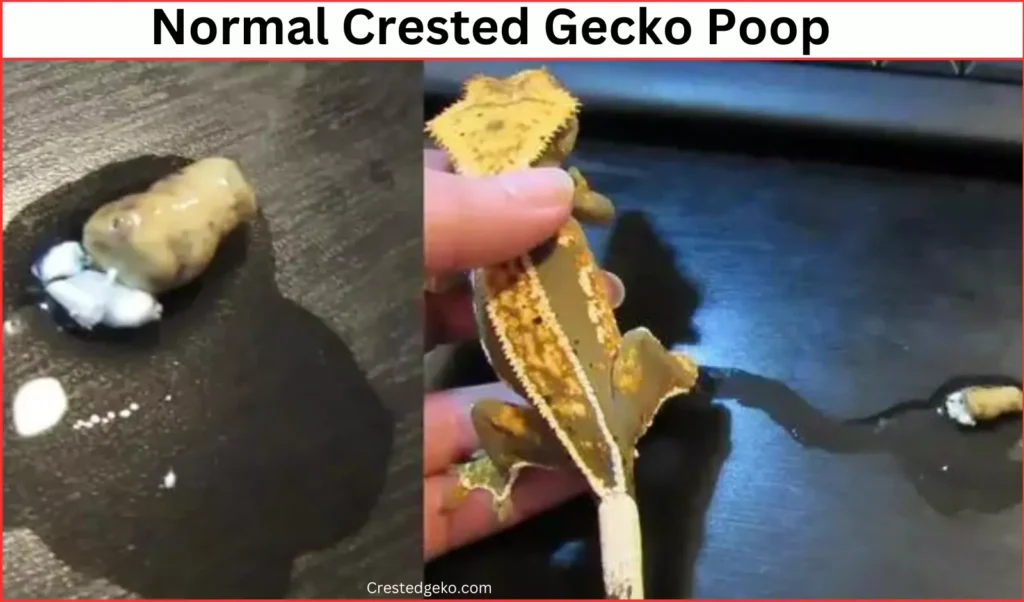
Normal crested gecko poop consists of two parts:
- Feces
- And urates
Feces are the solid waste that comes from the digestion of food.
Urates are the white or yellowish crystals that come from the excretion of uric acid, which is a byproduct of protein metabolism.
Normal feces should be brown or black in color, depending on what your gecko eats.
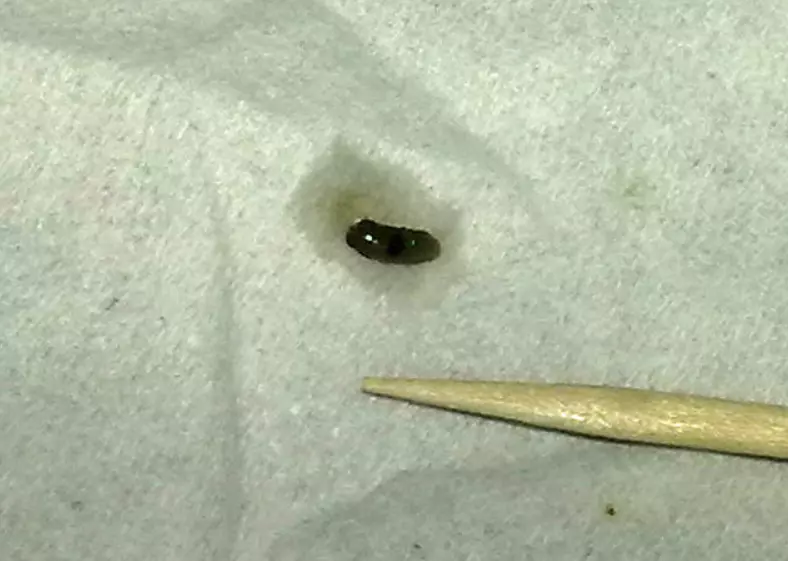
If you feed your gecko a commercial diet such as Repashy or Pangea, their feces will be dark brown or black.
But if you feed insects or fruits, their feces may have different colors depending on the type and color of the food.
For example, if you feed your gecko crickets or dubia roaches, their feces may be light brown or tan and if you feed blueberries or raspberries, their feces may be purple or red.
Here’s what to look for in the poop:
- Feces should be firm, not too dry or too wet. They should have a smooth surface and a cylindrical shape. They shouldn’t be sticky, slimy, or contain blood, mucus, worms, or undigested food.
- Urates should be white or cream, not yellow or orange. They shouldn’t contain blood or crystals.
- The size of the poop will depend on the gecko’s size, roughly like a grain of rice or a pea. Larger geckos will produce larger poop.
- Crested geckos typically poop every few days, depending on their eating and drinking habits. Some may poop more frequently, but as long as they’re active and healthy, it’s normal.
Note: Generally, crested geckos poop in the same spot in their enclosure. They may choose a corner, a hide, a plant, or a wall as their preferred pooping place. However, some geckos might poop randomly, including on you when you handle them.
What Causes Crested Gecko Poop To Be Abnormal?
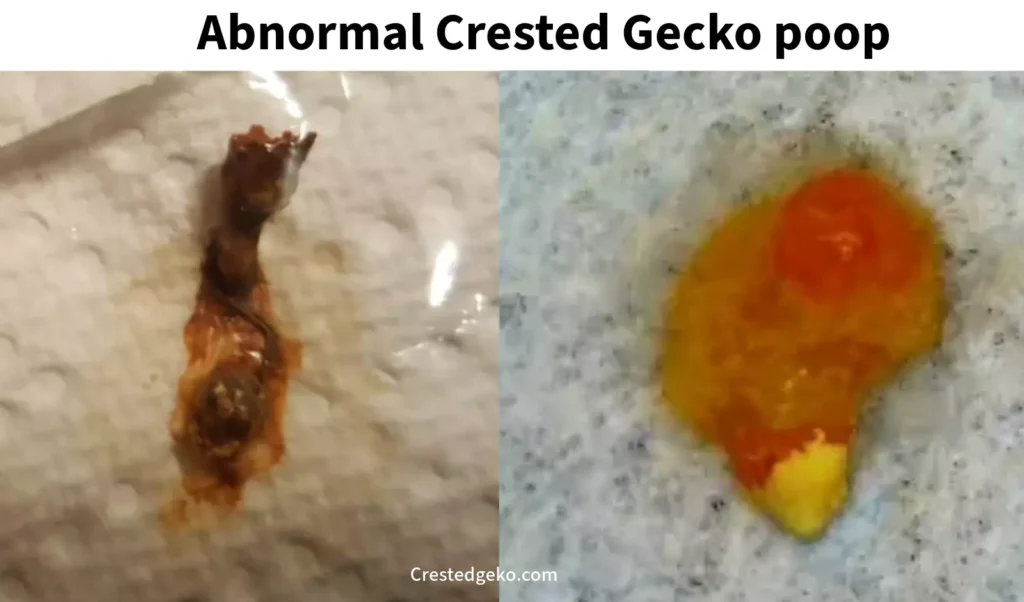
Crested gecko poop can be abnormal due to various reasons, including parasites, stress, changes in diet, shedding, and high humidity levels.
Among these, incorrect diet and parasites are the most common.
Parasites are organisms that live inside or on your crested gecko and feed on its blood or nutrients.
If the poop is green, or bloody, it means your gecko has been affected by parasites.
Some of the most common parasites are:
- Pinworms
- Coccidia
- Giardia
- Cryptosporidium
On the other hand, an incorrect diet can also cause big trouble.
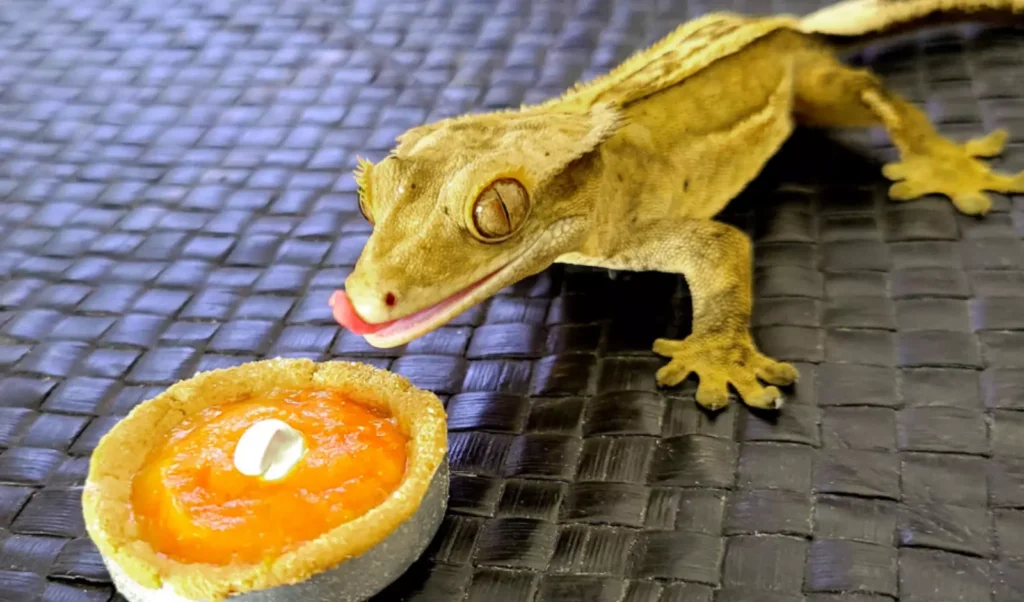
Fruits such as bananas, raspberries, and apples, are all high in fiber, and too many of these in your lizard’s diet will cause your crested gecko’s poop to be ‘runny’
‘Runny’ means that the poop of your crested gecko is more liquid than usual or expected, or that it has a lot of mucus in it.
Most of the time, when a gecko poop is runny, it indicates that it has a problem with its digestion, such as incorrect diet, stress, infection, or disease.
Look at this table:
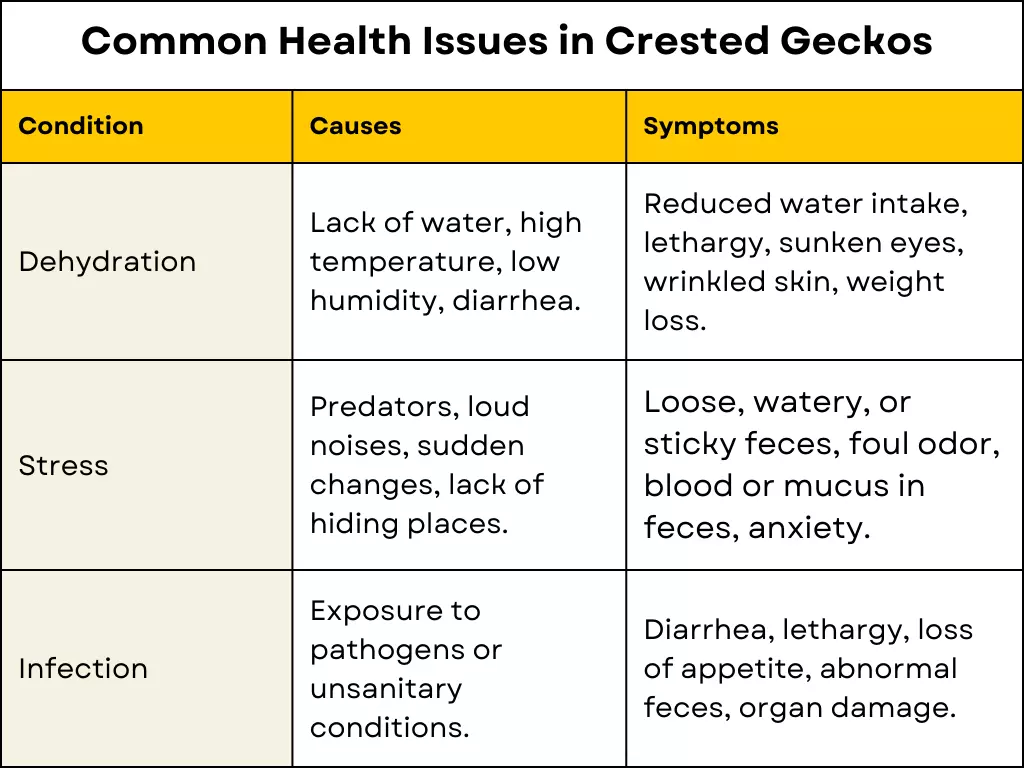
How To Prevent Common Health Issues Related To poop?
To make sure your crested gecko stays healthy and doesn’t have poop-related issues, follow these steps:
- Always keep fresh water in your gecko’s enclosure and mist it daily to maintain the right humidity. You can also offer water droplets on its nose or moistened food to help it drink.
- Feed your gecko a good mix of food, including high-quality crested gecko food or insects with added calcium and vitamins.
- Make sure your gecko’s habitat is roomy, well-ventilated, and has the right lighting, heat, and decorations.
Regularly clean the enclosure and accessories to get rid of poop, shed skin, and other waste that can attract harmful stuff like bacteria or parasites. If you see anything unusual with your gecko’s poop, get in touch with a reptile vet right away.
F.A.Q.s
Q: How can I tell if my crested gecko has parasites?
Some of the signs that your crested gecko may have parasites are weight loss, diarrhea, dehydration, anemia, lethargy, loss of appetite, and abnormal poop.
You can also check their poop under a microscope or send it to a lab for testing.
Q: How can I prevent my crested gecko from getting dehydrated?
You can prevent your crested geckos from getting dehydrated by providing them with fresh water in a shallow dish or a drip system.
Mist their enclosure at least twice a day to increase the humidity and encourage them to lick the water droplets.
Q: How often should I take my crested gecko to the vet?
Take your crested gecko to the vet at least once a year for routine check-ups and vaccinations.
Also, take them to the vet if they show any signs of illness or injury or if their poop is abnormal.

